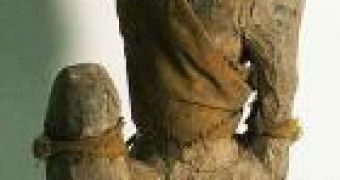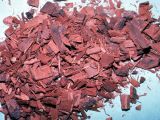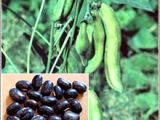The basic needs of the humans, like in all animals, are food and sex.
But sex for men is more than reproduction: it is power and vanity. When it is not functioning at top speed, it can lead in males to low self-esteem, depression and anti-social behavior. That's why people in many cultures have been using aphrodisiacs for millennia to improve or boost sex life. Africans are no exception.
Coffee is known to boost the sex drive and excitation. Caffeine has the effect of increasing dopamine, a major neurotransmitter that is linked with keeping high the level of blood testosterone and the mood, beside increasing nervous excitability (thus the speed of getting an erection). Still, excitability has also another effect: it can induce premature ejaculation.
But very few know that the coffee tree originated in the highlands of Ethiopia (northeastern Africa). Perhaps the most known African aphrodisiac is extracted from the bark of the yohimbe tree (Pausinystalia yohimbe), a relative of the coffea tree, found in West Africa.
The main active chemical of yohimbe tree is the alkaloid yohimbine (but there are also another 31 yohimbane alkaloids found in Yohimbe). Yohimbine is a selective alpha2-adrenergic receptor antagonist that is sometimes employed as an alternative treatment for erectile dysfunction. Controlled studies suggest that it is not a particularly effective treatment for impotence and evidence of increased sex drive (libido) is anecdotal only. Too much yohimbine can kill you, which is not the kind of stiffness most guys are after.
Higher doses of oral yohimbine may create numerous side effects such as rapid heart rate, high blood pressure and overstimulation. Yohimbine can also induce anxiety, insomnia and sleeplessness in some users. In veterinary medicine, yohimbine is employed to reverse anesthesia from the drug xylazine in small and large animals.
The root of Carpolobia lutea tree (Polygalaceae), rich in sarponins, is used in Western Africa as an invigorating tonic or aphrodisiac. Water in which the root of Cassia sieberiana (shower tree) (Fabaceae, related to beans) has been kept for a week is used as an aphrodisiac.
Dioscorea cayenensis (a type of yam plant) is employed as an aphrodisiac when boiled by the Yorubas (southern Nigeria). Sea bean, cowitch, buffalo bean (Mucuna pruriens) is a climbing shrub used in central Africa as aphrodisiac. It contains levodopa (a direct precursor of dopamine) at about 40 milligram/gram of the plant.
Researches proved that Mucuna seeds improve erection, duration of coitus and post-coital satisfaction after only four weeks of treatment. The seed also has spermatogenic effects, improving sperm count and motility.
Paradoxically, Africans do not regard rhino horns as aphrodisiacs, even if now only Africa delivers to the black market the stuff.
Rhino horn is the most useless way of wasting money (a lot of it) and time to achieve nothing; its (illegal) usage in traditional Chinese medicine comes from the performances of the animal (rhino sex lasts from 30 minutes to more than one hour) and its large penis (on average 80 cm of 2.5 feet).
People regarded the horn as the site of the sexual power of the rhino, perhaps because the horns could resemble an erect penis.
For ignorant minds, that's enough to grind them and ingest to get the rhino's powers. But the horn contains nothing more than keratin, the substance from hair, nail and dead skin.
So, chew your nail, at least it's for free and you do not kill such a superb beast like a rhino.

 14 DAY TRIAL //
14 DAY TRIAL // 

